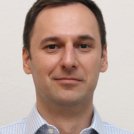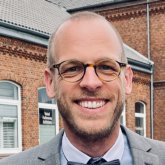Are you passionate about developing cutting-edge numerical algorithms at the intersection of geometry, stochastic analysis, and high-performance simulations? We offer a challenging PhD position in the Mathematics of Computational Science group to design and analyse novel structure-preserving methods for stochastic dynamical systems, with applications ranging from plasma physics and molecular dynamics to advanced simulations for sustainable energy research.
We are looking for a motivated and ambitious PhD candidate to join the Mathematics of Computational Science (MACS) group within the Department of Applied Mathematics at the University of Twente. The successful candidate will work under the supervision of Dr. Tomasz Tyranowski on a project dedicated to advancing the field of stochastic geometric integration.
The project focuses on the development and analysis of novel structure-preserving numerical algorithms for stochastic dynamical systems, particularly stochastic Hamiltonian systems. These methods are designed to retain the intrinsic geometric properties of the underlying equations, ensuring stability and accuracy in long-time simulations. The research combines fundamental mathematical theory with applications in areas such as plasma physics, molecular dynamics, and medical physics. In particular, the work contributes to improving large-scale plasma simulations that are essential for the design and optimization of nuclear fusion devices, a key step toward future sustainable energy technologies.
You will conduct your research in a collaborative, international, and interdisciplinary environment that values both academic excellence and open exchange of ideas. The MACS group offers a stimulating atmosphere with regular discussions, opportunities for collaboration, and access to expertise in numerical analysis, dynamical systems, and high-performance computing. The position includes funding for several short research stays at the Max Planck Institute for Plasma Physics in Garching near Munich, Germany, providing valuable opportunities to collaborate with leading experts in computational plasma physics and expand your professional network. You will also have opportunities to present your work at leading conferences, engage in international collaborations, and develop a strong professional profile in computational mathematics and its applications.
Information and application
Are you interested in this position? Please send your application via the 'Apply now' button below before October 1, 2025, and include:
- A Curriculum Vitae, including a list of all courses attended and grades obtained, and, if applicable, a list of publications and references.
- A cover letter (maximum 2 pages A4), emphasising your specific interest, qualifications, and motivations to apply for this position.
- A summary of your Master’s thesis/final project.
- References (contact information) for two scientific staff members (preferably including the supervisor of your Master’s thesis/final project) who are willing to provide a recommendation letter upon request.
- An IELTS-test, Internet TOEFL test (TOEFL-iBT), or a Cambridge CAE-C (CPE). Applicants with a non-Dutch qualification and who have not had secondary and tertiary education in English can only be admitted with an IELTS-test showing a total band score of at least 6.5, internet. TOEFL test (TOEFL-iBT) showing a score of at least 90, or a Cambridge CAE-C (CPE).
For more information regarding this position, you are welcome to contact Dr. Tomasz Tyranowski (t.m.tyranowski@utwente.nl).
Recruitment will be conducted on a rolling horizon: applications will be reviewed as they are received, and shortlisted candidates may be invited for interviews prior to the application deadline.
Screening is part of the selection procedure.
About the organisation
The faculty of Electrical Engineering, Mathematics and Computer Science (EEMCS) uses mathematics, electronics and computer technology to contribute to the development of Information and Communication Technology (ICT). With ICT present in almost every device and product we use nowadays, we embrace our role as contributors to a broad range of societal activities and as pioneers of tomorrow's digital society. As part of a tech university that aims to shape society, individuals and connections, our faculty works together intensively with industrial partners and researchers in the Netherlands and abroad, and conducts extensive research for external commissioning parties and funders. Our research has a high profile both in the Netherlands and internationally. It has been accommodated in three multidisciplinary UT research institutes: Mesa+ Institute, TechMed Centre and Digital Society Institute.




